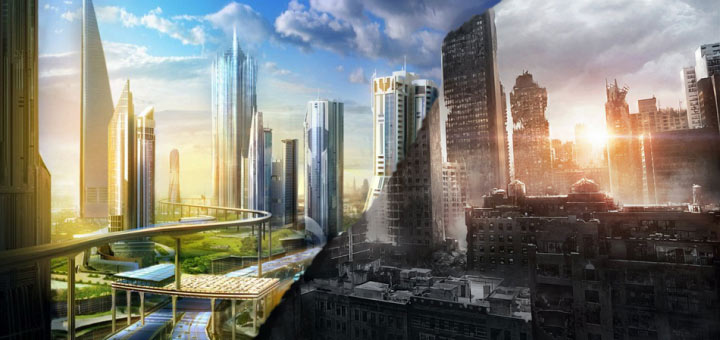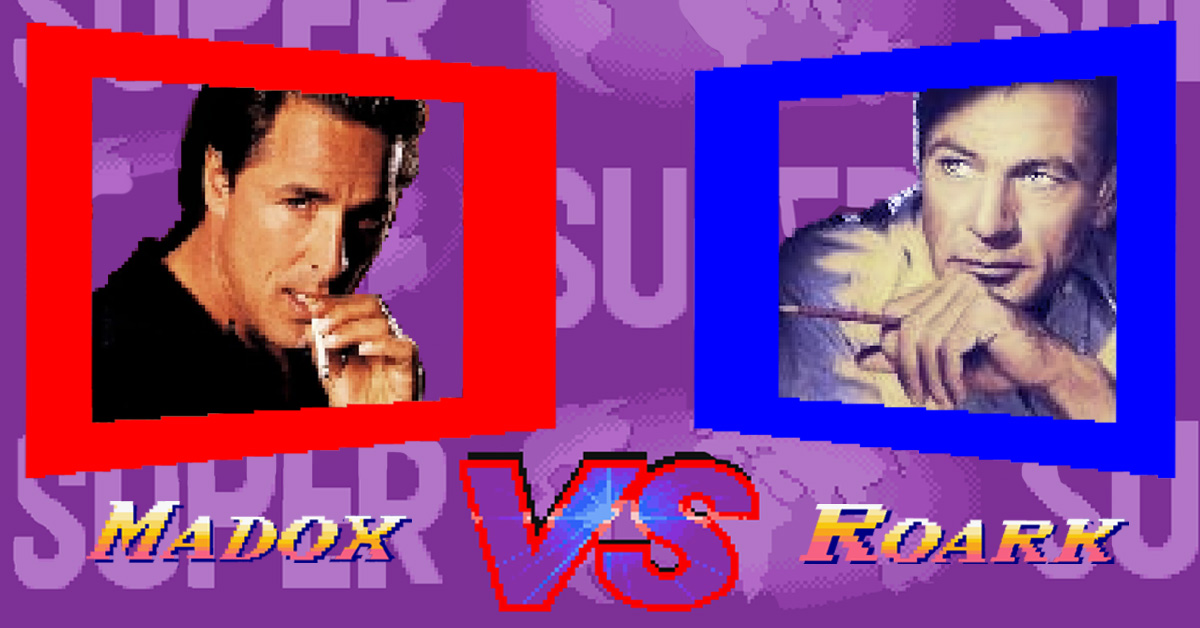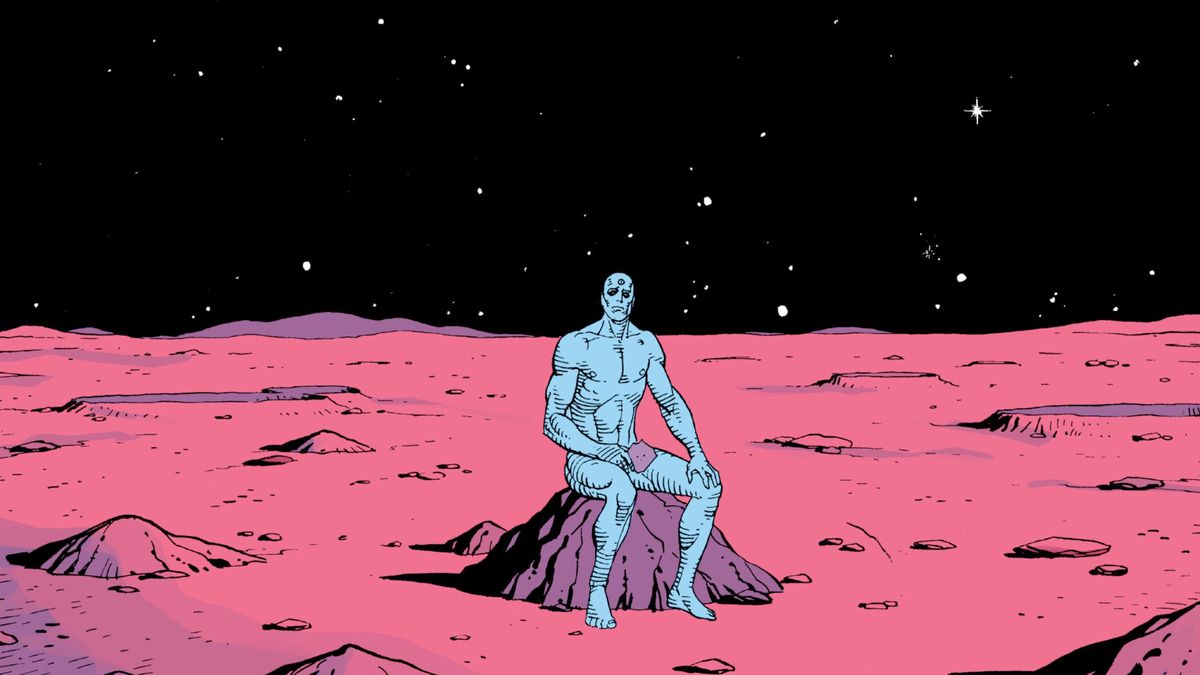Is there a place for utopia? Frederic Jameson has claimed that in a postmodern world, we hold a deep suspicion towards utopian ideals (1991 cited in Vieira, 1993). Scepticism towards the possibility of utopia can be found within the term ‘utopia’ itself; coined in 1516 by Thomas More, it is taken from the Greek ou-topos meaning “no place”. Jameson also argues that under closer analysis, the impulse towards utopianism can still be pulled out from postmodern artefacts, thereby illuminating the human unwillingness to abandon utopianism despite such widespread suspicion. Author and media theorist Douglas Rushkoff has openly advocated for utopian ideals, particularly giving credence to the potential of technology to further our social, political and spiritual progression. This essay will lay out Rushkoff’s strand of technological utopianism, offering an analysis of its dystopian counterpart found in Do Androids Dream of Electric Sheep? by Philip K. Dick, while also addressing the paradoxical nature of our relationship to the utopian impulse and the unavoidable ontological implications of this.
In Open Source Democracy (2003), Rushkoff outlines his thesis that with the advent of the internet, the ‘electronic renaissance’ was born (Rushkoff, 2003: 34). Demystification of and heightened interactivity with technology meant that the individual became an active participant in, rather than a passive receiver of media and information. Empowered to deconstruct and reinvent political narratives, people could communicate their ideas globally for the first time, creating their own form of decentralised media, which Rushkoff considers crucial for the survival of democracy. His earlier work Cyberia (1994) also deals with the dissemination of the internet into mainstream culture, albeit using a more Gonzo-esque methodology. The book follows Rushkoff’s excursion into the subcultures of the computer hackers, acid house ravers, and neopagans of the early 1990s, as he grapples with their view of the world. They were anticipating a new stage of human evolution, one in which both society and consciousness would change radically, with technology serving as the catalyst. They spread occult techniques and politically subversive ideas technologically, while inducing shamanic states using psychoactive substances and electronic music. Their aim was to reprogram the perception of reality in the minds of the population at large, to move society forward into a more utopian state. These sentiments echo earlier utopian paradigms espoused by futurist thinkers of the 1960s such as Timothy Leary, who believed the advancement of technology, pharmaceuticals and psychedelic drugs would inevitably lead to space migration, intelligence increase and life expansion. The main difference the ‘90s techno-shamans had with Leary is that “the kids now are not going to turn on, tune in, drop out. They’re going to drop in. They’re going to infiltrate society and change things from within.”
Utopia has been defined as a society in which “the various social, political and economic ills of the real world have been solved”, and which enables the “maximum fulfilment of individual human potential” (Booker & Thomas, 2009: 75). By contrast, a dystopian society is one in which these ills are exacerbated and in which such fulfilment is suppressed. Philip K. Dick’s 1968 novel Do Androids Dream of Electric Sheep? depicts a cyberpunk dystopia; a decomposing world in which advanced technology plays both a threatening and placating role. Set in a global nuclear fallout, the majority of mankind has emigrated to off-world colonies, leaving only those with undesirable intelligence levels – the ‘chickenheads’ – behind. Most other species have died out, making the ownership of a real animal rare. Caring for one, or showing empathy, is considered the highest moral virtue and is maintained as such through the dominant religion of Mercerism. Electric replicas of animals are the coveted objects of consumerism, as even caring for an electric animal is seen as exemplary of empathy. Android robots have been created as slaves for the emigrants; the only means by which one can tell them apart from humans is to measure empathic response, which they aren’t capable of. Empathy, then, not only constitutes the highest moral value, but is the defining factor of what it is to be human.
The protagonist, bounty hunter Rick Deckard, is sent to retire a group of rebel androids. They possess the newly developed Nexus-6 brain unit which is capable of much faster physiological responses, making them potentially undetectable. We are led through Deckard’s conflicting feelings towards the androids. His disgust is made clear when he considers his electric sheep a “sub-form of [the android] … a vastly inferior robot. Or the andy a highly developed version of the animal … [b]oth viewpoints repelled him” (Dick, 1968: 36). Deckard justifies his lack of empathy for them by likening them to solitary predators, void of humanity. He later develops sexual attraction towards some of the female androids, causing him to question his own empathic faculties. He muses upon whether the androids dream, and notes their aspirations to come to Earth where they might find a better life.
Ultimately, the novel raises questions around what it means to be human. The use of technology proliferates this, with the implication that empathy and emotion can be artificially induced through the use of the mood organ; a device which offers the full spectrum of emotion at the touch of a code. Another device, the empathy box, induces the experience of ‘fusion’ with Wilbur Mercer, the messianic figure of Mercerism. During fusion, one vividly experiences and identifies with Mercer’s continual struggle of pushing a rock up a hill, in semblance to the Greek deity Sisyphus. Central to this archetypal struggle is the feeling of connection with all other living beings, or the “mutual babble of everyone else in fusion” (Dick, 1968: 19). It is unclear whether fusion is the enhancement of natural empathy, or if it artificially replaces a capacity which has become lost. Indeed, Scott (2017) characterises the world as dystopian precisely due to a loss of empathy, and points out Deckard’s lack of empathy for the androids as inevitably leading to his moral decay.
The ambivalence of empathy as commensurable with human nature poses a fundamental challenge to the idea that human beings are distinct from mere machines. The androids could, thus, be seen as representative of two issues arising from technological advancement: the onset of artificial intelligence and what this means for human existence as we know it, or, the human being itself as a cyborg; the emergence of the post-human being. In Cyberia, members of occult fellowship Thee Temple Ov Psychick Youth define empathy as a “frequency” communicated through the “human biosystem, or neural linguistic coalitive technological system”. Humans are thus seen as synonymous with computers and not separate from technology. This is a view shared by Andy Clark who interprets the cyberpunk depiction of man merged with machine as a metaphor for the reality of human beings as “natural born cyborgs” (Clark, 2003 cited in Haney, 2006). These sentiments suggest that the experiences induced by the mood organ and empathy box are just as valid as ‘real’ experiences, breaking down the distinction between simulation and reality. However, if humans are computers, and empathy can be technologically induced, the possibility of an android that feels empathy cannot be ruled out. If this could be achieved, could that android then be called human? Perhaps Dick’s androids can be seen as prototypes, or beta versions of an extension of the natural cyborg with which our humanity is inextricably linked. Hayles (1999) points out the blurred line between the human and non-human as she considers Dick’s schizoid human who feels no empathy, defining the android as a signifier for the deconstruction of the opposition between the two.
Dick’s world is clearly one in which technological advancement has been reached, yet myriad problems remain. By creating the androids, humans have achieved perhaps one of the highest utopian goals – that of the elevation to Godhood, and the ability to create life in our own image. Yet, the resulting creation feels unfulfilled, seeking to become more like its creator and attain something it feels missing from its essence, just as mankind has done from time immemorial. This echo of the human striving for apotheosis is expressed most explicitly in Ridley Scott’s 1982 film adaptation Blade Runner, in which the androids chase down and demand from their “father” an extension to their short four-year lifespan. Thus, even in Godhood, utopia is still not achieved.
This brings us to the hard problem within this analysis. We can reasonably assert that what characterises a dystopia is fundamentally the effect of human shortcoming. In Do Androids Dream of Electric Sheep?, our shortcoming is the loss of our humanity, which is embedded within the loss of empathy. This is in turn embedded within the advancement of technology. If the natural born cyborg view of human nature is correct, then we are faced with a paradox – the loss of our humanity is embedded within our humanity. Moreover, by creating utopia, an environment within which the quintessential human can thrive, we simultaneously exist inside dystopia, one in which the effect of our shortcoming is increased. This perhaps only exposes the delusive nature of the utopia/dystopia dichotomy. It might be better conceptualised as a kind of interconnected duality, with each opposing force containing fragments of its counterpart. As Kumar (2013) notes, dystopia is “not so much the opposite of utopia as its shadow”.
Another possibility is that the natural born cyborg view of humanity is incorrect. Initially, one might assume the experience of fusion to be emblematic of the essential virtuality of human experience, our bodies mere material housing for disembodied information. This discredits the possibility of the individual human soul, and gives rise to the anti-essentialist rejection of an objective human nature maintained by postmodernist thinkers like Foucault (2006). However, near the end of the novel,Mercerism is publicly debunked and the entire experience of fusion shown to be fraudulent. The androids anticipate mass change among humans, claiming that without Mercerism the human capacity for empathy is in itself a sham. Despite this, chickenhead John Isodore immediately enters fusion and communicates with Mercer. In the final chapters Deckard drives to the desert and climbs a hill, realising he is acting out Mercer’s Sisyphian struggle, not inside the simulated world of the empathy box, but as one with Mercer himself. Rather than feeling the presence of all others in fusion, he is alone. If the empathy box is a space in which the material body experiences disembodied mind, then exposing it as fraud ironically returns human nature to the individual. For if fusion is not in fact information projected onto the embodied stage of individual experience, then it is the creation of the individual themselves, the empathy box serving only as a trigger.
Mercer appears to Deckard, saying “[t]hey will have trouble understanding why nothing has changed. I’m still here, you’re still here. … I will continue to lift you until you … want to quit. But you will have to stop searching for me because I will never stop searching for you.” (Dick, 1968: 187). This speaks to something deeper in the human condition than computational processes, and undermines the postmodernist denial of human nature. Moreover, the empathy box, rather than an oppressive device hindering our ability to experience empathy, can instead be seen as a means of maintaining that ability and breaking the illusion of isolation in a decaying and depopulated world (Davis & Chazelle, 2010). Fusion perhaps reflects Jameson’s latent utopian impulse inside the otherwise relentlessly postmodern, binary- breaking maelstrom of Dick’s world, and this use of the empathy box might be seen as an example of Rushkoff’s technological solutionism. Indeed, Rushkoff never states that the only result of technological advancement is utopia. Instead, his utopianism may be characterised as a solution to dystopia created by the failures of the technology that came before.
In conclusion, Do Androids Dream of Electric Sheep? serves as a focal point for the concern of whether technological advancement necessarily begets utopia. Humans as technologically motivated creatures may live out a paradoxical existence, as this aspect of our nature, if it is such, potentially gives rise to the enhancement of our flaws. Moreover, the difficulty in defining what it means to be human reflects real-world issues of the impact of technological growth within society. The idea of humans as distinct from machines is challenged, yet there is also an indication of something inherent within us which cannot be reduced to mere mechanisation. In light of the adjacent difficulty of defining utopia, the vital question Dick’s novel raises may not be whether there is a place for utopia. Instead, it may simply be; is there a place within utopia for our humanity?
Bibliography
Chomsky, N. & Foucault, M. (2006) The Chomksy-Foucault Debate: On Human Nature. New York: The New Press.
Davis, L. & Chazelle, D. ed. Do Androids Dream of Electric Sheep? Themes. [Online] Available at: http://www.gradesaver.com/do-androids-dream-of-electric-sheep/study-guide/themes [Accessed: 24 April 2017]
Dick, P.K. (1968) Do androids dream of electric sheep?. Reprint, London: Gollancz 2007.
Booker, M.K. & Thomas, A.M. (2009) The science fiction handbook. West Sussex: John Wiley & Sons.
Haney, W.S. (2006) Cyberculture, cyborgs and science fiction: consciousness and the posthuman (Vol. 2). Amsterdam, New York: Rodopi.
Hayles, N.K. (1999) How we became posthuman: Virtual bodies in cybernetics, literature, and informatics. Chicago, London: University of Chicago Press.
Kumar, K. (2013) ‘Utopia’s shadow’ Dystopia (n) Matters: On the Page, on Screen, on Stage. Newcastle Upon Tyne: Cambridge Scholars Publishing.
More, T. (1516) Utopia. Habsburg Netherlands: Thomas More.
Rushkoff, D. (2002) Cyberia: Life in the trenches of hyperspace. San Francisco: Harper.
Rushkoff, D. (2003) Open source democracy: How online communication is changing offline politics. London: Demos.
Rushkoff, D. & Coupland, D. (1994) The GenX Reader. New York: Ballantine Books.
Scott, A.G. (2017) A Comparison of Dystopian Nightmares and Utopian Dreams: Two Paths in Science Fiction Literature That Both Lead to Humanity’s Loss of Empathy. MOSF Journal of Science Fiction, 1(3).
Vieira, G.C. (1993) No Place for Utopia: Postmodern Theory and The White Hotel. Utopian Studies, pp.117-127.



